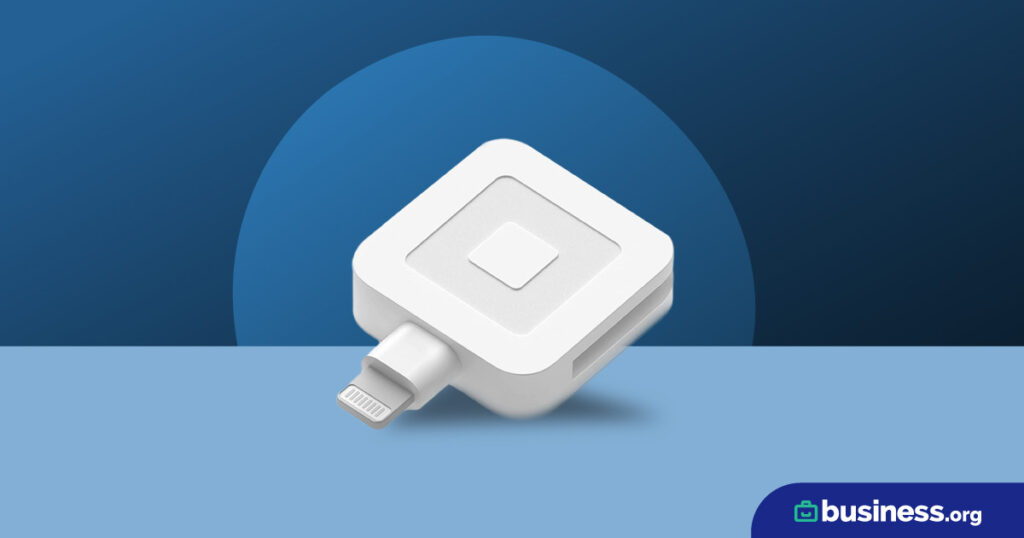We are committed to sharing unbiased reviews. Some of the links on our site are from our partners who compensate us. Read our editorial guidelines and advertising disclosure.
How to Negotiate Credit Card Processing Fees
Some processing companies don’t print their prices online because they want to get potential clients into a sales call negotiation. Other processors display certain rates on their website but are willing to negotiate a better deal for businesses with good processing volume.
Whatever the case may be, it’s crucial for small-business owners to enter a processing fee negotiation armed with everything they need to get a good deal. That’s exactly what this guide will help you do.
How to negotiate credit card processing fees
Step 1: Understand common pricing practices
There are three simple ways that most processors charge for their processing service:
- Processing fees
- Monthly fees
- Extra fees
Each of these fees has a significant effect on the overall price you’ll end up paying for processing services, so it’s crucial to understand how each one works.
Processing fees
Processing fees generally come in two different formats: a flat fee or an interchange-based fee. Usually, flat fees are more expensive than interchange-based fees, so you’ll probably want to gear your negotiation toward an interchange-plus pricing model.
Here are a few interchange-plus rates from more affordable processing companies:
Cheap credit card processing rates
If you can negotiate a rate near any that the companies above use, then you’ll have yourself a really good price. In fact, it’s worth stating the rates of competitors in the sales call so the salesperson has an idea of the kinds of services and prices you’re considering.
Monthly fees
One thing you may notice about the table in the previous section is that the better the rate, the higher the monthly fee. Some processors don’t even charge a monthly fee. Square, for example, just charges a high flat-rate transaction fee without a monthly fee.
But here’s the thing, if you start by negotiating a good processing rate and you keep your monthly fee at a reasonable price, your out-of-pocket costs will get cheaper as you process more transactions. So if you already make a lot of sales every month, a reasonable monthly fee won’t be too much of a problem with a good interchange-plus pricing rate.
Monthly fees generally range from nothing to $99 per month. And at $99, the processing fees should be really cheap (see Stax in the table above).
That said, businesses that don’t process a lot of transactions will probably just want to negotiate a flat-rate processing fee with no monthly payment.
Extra fees
Extra fees can turn a good deal into a bad deal. There are some extra fees that are unnecessary and used to nickel and dime businesses and some that are there for a reason. We’ll start by talking about the fees you should avoid:
- PCI compliance fee
- Setup fee
- Minimum processing volume fee
- Cancellation fee
- Batch processing fee
- Statement fee
Processors may give reasons for charging these fees, but don’t let that persuade you. If you see any of these fees in your contract, ask to have them waived as they are dated and unnecessary. There are tons of companies not charging these pointless fees, including Stax, Payment Depot, Square, and Stripe. You may want to mention that none of these competitors have unnecessary fees.
That said, there are some aspects of processing that increase costs and constitute reasonable extra fees:
- Chargeback dispute fee
- Fees for add-on features
Chargebacks are a natural part of processing credit card transactions. You can do things to avoid them, but it’s extremely unlikely that any business can avoid them entirely. When they happen, they affect both you and the processing company. That’s why processing companies may charge a fee for chargebacks.
Chargeback fees range from $15–$50, depending on the circumstances of the chargeback. Some companies will waive the fee for chargebacks that are successfully disputed. If your contract has a fee for chargebacks that is considerably larger than the range listed above, you may want to negotiate that fee down a bit.
In fact, you could leverage Stripe’s chargeback policy in your sales call. Stripe charges only $15 when a payment is disputed, and that fee is refunded if the dispute is resolved in your favor.
The only other fees you may encounter are fees for extra services. Some processing companies will offer services like inventory management, rewards programs, and chargeback protection. Sometimes these services are included in the monthly fee and processing fees, but sometimes you’ll have to pay extra for them.
By signing up I agree to the Terms of Use and Privacy Policy.
Step 2: Understand what’s included for the price
More expensive fees don’t always mean less value. You may have a checklist of features you’re looking for. There are a lot of features businesses like bundled with their processors:
- Inventory management
- Employee management
- Point-of-sale hardware and software
- Rewards programs
- Restaurant management tools
- Analytics reports
- Added security programs
- Chargeback management tools
Your processor may come bundled with some of these features. Bundled features can drive up the overall price of processing, so be sure you’re investing in tools you’ll actually use.
Another important aspect of a processing program’s value is the quality of their customer service. The best place to find info on a company’s customer service quality is via online reviews.
Once you find a company that matches your feature and customer service expectations, you can more easily negotiate a price point that works for you.
Step 3: Make the call
Once you feel prepared to make the call, it’s time to pick up that phone and get dialing. It may be helpful to put together a little fact sheet with information about competitor prices and fees. Also, come up with a processing figure that makes sense for your business (you may even want a range of numbers starting with a lowball in case your sales rep tries to barter your price).
Remember that a sales call is just that: a phone call. It’s not a contract. And if you fail to come out of the call with a good rate, you don’t have to sign a contract. You can regroup, think about what maybe didn’t go so well, and call again ready to negotiate.
Don’t let yourself get pressured into signing a contract you haven’t had time to read over. We’ll go into detail on processing contracts a little later, but it's important to keep in mind that if you ever feel overly pressured in a sales call, you can just hang up.
Negotiation tips
Negotiating is a skill as old as civilization. Here are a few tips to help your negotiations go a bit better:
- Keep a cool head. Don’t let the salesperson get you emotionally charged. If you feel yourself losing control of your emotions, just interrupt the call with an excuse to put the salesman on hold, mute your microphone, and take some time to collect your thoughts.
- Have your information ready. Salespeople may try to tell you a bad rate is a good rate. But if you have good rates from other companies written down, you can easily contradict bad information.
- Take your time. Don’t be afraid to stop and ask questions or to ask for a few seconds to think. Simply saying something like “give me a couple of minutes to run those numbers in my spreadsheet” can buy you ample time to strategize and digest the information in the call.
- Take notes on what your salesperson is saying. This ties in directly with taking your time because you may need to slow down the call and say, “Hold on, I’m writing something down.” Plus, you’ll have a written record of your salesperson’s promises in case your contract contradicts those promises.
If you follow these simple tips, your first call with the processing company should be pretty smooth.
Step 4: Read the contract
The negotiation process doesn’t end when you hang up the phone after the initial sales call. Once the contract is in your hands, the real negotiating starts. Scour through your contract for any additional fees. Look for wording that may suggest that the company has the right to raise your rates. If you’re going to sign a contract, you might as well have the benefit of a fixed rate for its duration.
You may even want to have a legal professional look over the contract to see if the processing company is disguising sketchy business practices in legal jargon. Contracts are where the rubber meets the road in what you’ll end up paying for processing, so don’t be afraid to ask for changes and revisions.
Step 5: Breathe a sigh of relief
Negotiating rates is a process, but once you have a good deal put together and you’ve signed on the dotted line, it can be a real relief to know you’re getting the processing features you want at a good price.
Other resources
Looking for more info on some of the topics covered above? You’ve come to the right place. And there are even a few topics we haven’t covered yet:
- How To Accept Credit Card Payments Online
- What’s the difference between surcharge and convenience fees?
- How does credit card processing work?
- What are interchange fees?
- What is high-risk credit card processing?
- Is flat-rate credit card processing better?
- What are the average credit card processing fees?
If there are any additional processing topics you’d like us to cover, please let us know.
The takeaway
Negotiating rates means you have to know a thing or two about how processing companies typically operate. Now that you’re in the know, you’re ready to hop on the phone and fight for a good price.
Just remember to read and revise your contract before you sign to avoid any tacked-on extras. That way, when the contract is signed and sealed, you’ll know you’re getting a good deal.
If you’re not interested in negotiating but are interested in good processing rates, you should check out our list of the cheapest processing companies of 2020.
Disclaimer
At Business.org, our research is meant to offer general product and service recommendations. We don't guarantee that our suggestions will work best for each individual or business, so consider your unique needs when choosing products and services.





